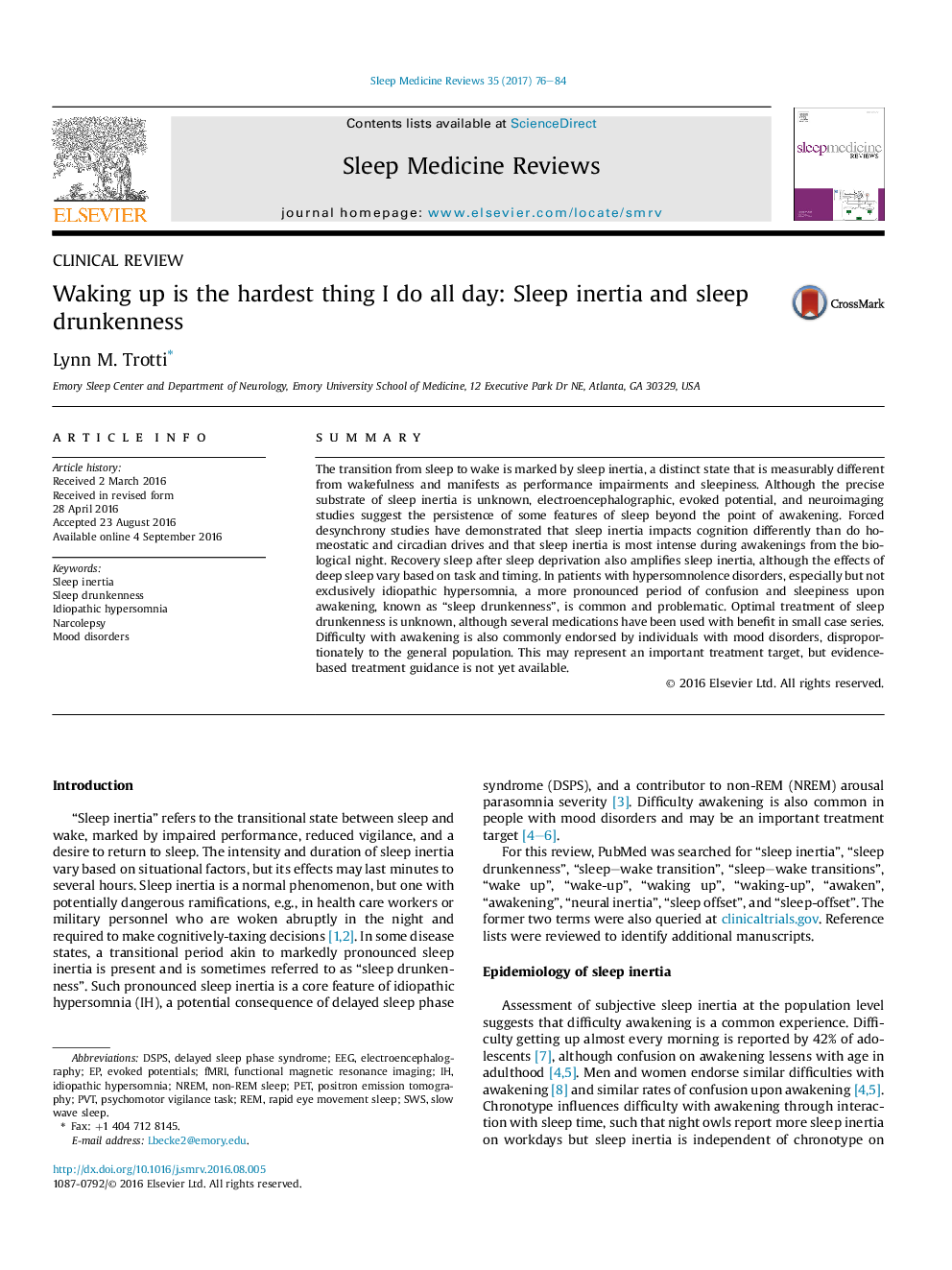| کد مقاله | کد نشریه | سال انتشار | مقاله انگلیسی | نسخه تمام متن |
|---|---|---|---|---|
| 5633616 | 1581349 | 2017 | 9 صفحه PDF | دانلود رایگان |
SummaryThe transition from sleep to wake is marked by sleep inertia, a distinct state that is measurably different from wakefulness and manifests as performance impairments and sleepiness. Although the precise substrate of sleep inertia is unknown, electroencephalographic, evoked potential, and neuroimaging studies suggest the persistence of some features of sleep beyond the point of awakening. Forced desynchrony studies have demonstrated that sleep inertia impacts cognition differently than do homeostatic and circadian drives and that sleep inertia is most intense during awakenings from the biological night. Recovery sleep after sleep deprivation also amplifies sleep inertia, although the effects of deep sleep vary based on task and timing. In patients with hypersomnolence disorders, especially but not exclusively idiopathic hypersomnia, a more pronounced period of confusion and sleepiness upon awakening, known as “sleep drunkenness”, is common and problematic. Optimal treatment of sleep drunkenness is unknown, although several medications have been used with benefit in small case series. Difficulty with awakening is also commonly endorsed by individuals with mood disorders, disproportionately to the general population. This may represent an important treatment target, but evidence-based treatment guidance is not yet available.
Journal: Sleep Medicine Reviews - Volume 35, October 2017, Pages 76-84
